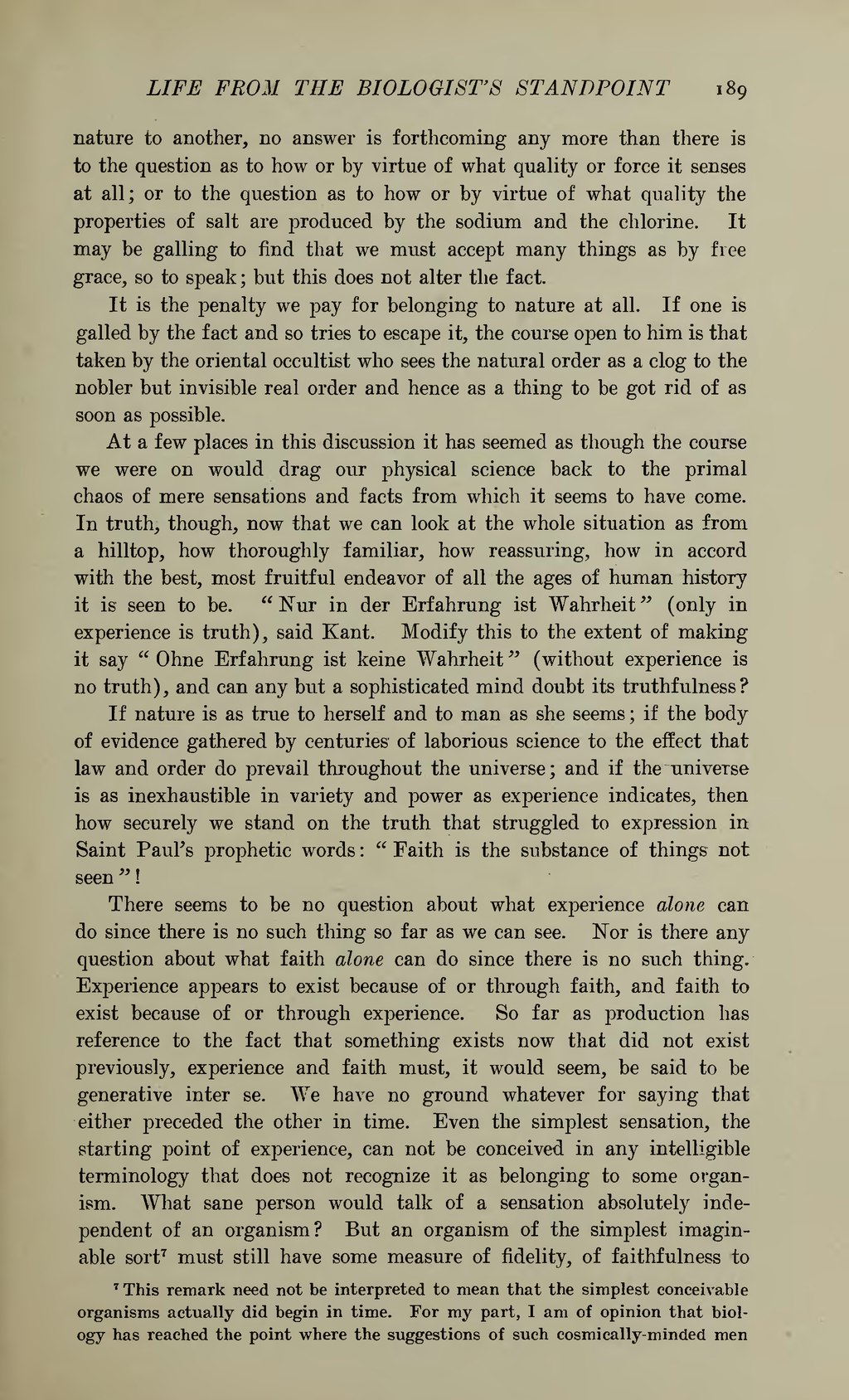nature to another, no answer is forthcoming any more than there is to the question as to how or by virtue of what quality or force it senses at all; or to the question as to how or by virtue of what quality the properties of salt are produced by the sodium and the chlorine. It may be galling to find that we must accept many things as by free grace, so to speak; but this does not alter the fact.
It is the penalty we pay for belonging to nature at all. If one is galled by the fact and so tries to escape it, the course open to him is that taken by the oriental occultist who sees the natural order as a clog to the nobler but invisible real order and hence as a thing to be got rid of as soon as possible.
At a few places in this discussion it has seemed as though the course we were on would drag our physical science back to the primal chaos of mere sensations and facts from which it seems to have come. In truth, though, now that we can look at the whole situation as from a hilltop, how thoroughly familiar, how reassuring, how in accord with the best, most fruitful endeavor of all the ages of human history it is seen to be. "Nur in der Erfahrung ist Wahrheit" (only in experience is truth), said Kant. Modify this to the extent of making it say "Ohne Erfahrung ist keine Wahrheit" (without experience is no truth), and can any but a sophisticated mind doubt its truthfulness?
If nature is as true to herself and to man as she seems; if the body of evidence gathered by centuries of laborious science to the effect that law and order do prevail throughout the universe; and if the universe is as inexhaustible in variety and power as experience indicates, then how securely we stand on the truth that struggled to expression in Saint Paul's prophetic words: "Faith is the substance of things not seen"!
There seems to be no question about what experience alone can do since there is no such thing so far as we can see. Nor is there any question about what faith alone can do since there is no such thing. Experience appears to exist because of or through faith, and faith to exist because of or through experience. So far as production has reference to the fact that something exists now that did not exist previously, experience and faith must, it would seem, be said to be generative inter se. We have no ground whatever for saying that either preceded the other in time. Even the simplest sensation, the starting point of experience, can not be conceived in any intelligible terminology that does not recognize it as belonging to some organism. What sane person would talk of a sensation absolutely independent of an organism? But an organism of the simplest imaginable sort[1] must still have some measure of fidelity, of faithfulness to
- ↑ This remark need not be interpreted to mean that the simplest conceivable organisms actually did begin in time. For my part, I am of opinion that biology has reached the point where the suggestions of such cosmically-minded men
